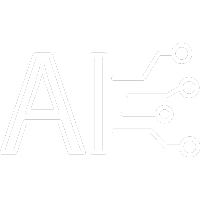
Virtual Reality in the Workplace
In today’s digital age, technology plays a pivotal role in reshaping how we work and interact. Among the key innovations, virtual reality (VR) stands out as a transformative force, promising to redefine professional experiences and workplace efficiency. This article dives deep into VR‘s potential in the workplace, examining how it revolutionizes training, design, collaboration, and more.
Immersive Training
Employee training is one of the most promising areas for VR implementation. With realistic simulations, employees gain practical skills in a safe, controlled virtual environment, whether learning safety protocols or customer service techniques. This approach reduces on-the-job errors and accelerates skill acquisition.
Design and Prototyping
For engineers and designers, VR enables 3D model manipulation in immersive environments, fostering detailed and accurate designs. Teams can interact with virtual prototypes, significantly cutting down development time and costs.

Remote Collaboration and Virtual Meetings
As remote work rises, effective communication tools become essential. VR allows teams to collaborate in a shared virtual space, regardless of geographic location. Virtual meetings can be conducted in customizable spaces, enabling efficient interaction and fostering a sense of connection beyond traditional video calls.

Immersive Customer Experiences
Businesses increasingly use VR to offer clients engaging, interactive experiences. From virtual home tours to product previews, VR provides companies with an innovative way to showcase products and enhance customer decision-making.
Health and Wellness
In health and wellness, VR has tremendous potential, from stress management to pain therapy. Immersive environments can be therapeutic, offering virtual landscapes for meditation or physical rehabilitation.
Specialized Sector Implementations
VR is advancing rapidly in specialized fields like medicine, arts, and tourism. Surgeons use VR for complex procedure simulations, while artists create immersive virtual exhibits. In tourism, VR allows exploration of exotic destinations, offering unique cultural experiences from anywhere.
Future Challenges and Opportunities
Despite its advantages, VR faces challenges such as high costs and ethical considerations around data privacy and responsible use. As technology advances, VR is expected to become more accessible and integrated into our daily lives.

Conclusion: Virtual reality offers unprecedented opportunities to transform how we work and interact. From immersive training to interactive customer experiences, VR is redefining innovation in the workplace, paving the way for an interactive, engaging future.













